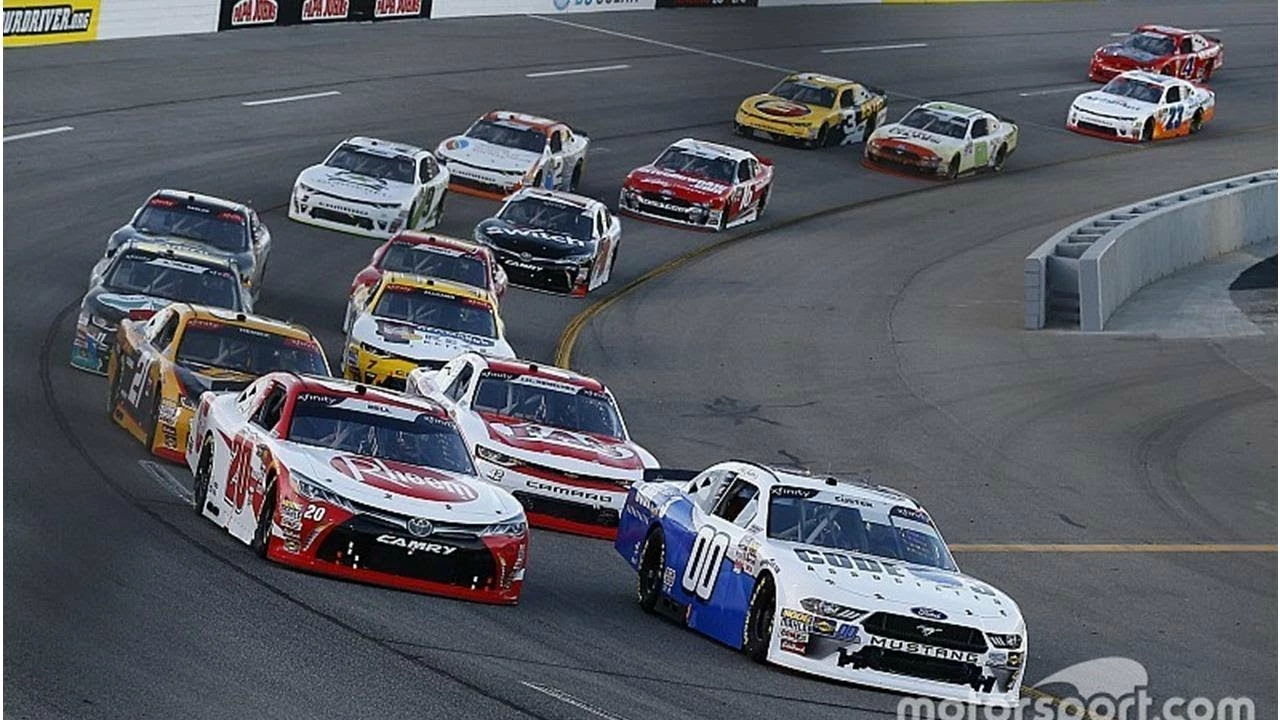Introduction: The Great NASCAR Debate
As a sports enthusiast, I find myself constantly immersed in discussions about various sports, their legitimacy, and the passion they evoke. One such debate that has always fascinated me is whether or not NASCAR should be considered a real sport. In this article, I will delve deep into the world of NASCAR, exploring various aspects and arguments to answer the question: Do you consider NASCAR to be a real sport?
The Physical Demands of NASCAR
One of the most common arguments against NASCAR being considered a real sport is the perceived lack of physical exertion required. However, this assumption is far from the truth. NASCAR drivers need to have incredible physical stamina to endure the high temperatures, vibrations, and G-forces experienced during a race. Additionally, the constant focus and lightning-fast reflexes required to navigate the track at speeds of over 200 mph are nothing to scoff at.
Some may argue that the use of a machine diminishes the physical aspect of the sport. However, it's essential to consider the physical and mental strain drivers experience while controlling these powerful vehicles for hours on end. NASCAR drivers are undoubtedly athletes, and the physical demands of the sport should not be underestimated.
Strategy and Teamwork in NASCAR
Another crucial aspect of any sport is the presence of strategy and teamwork. In NASCAR, these elements are abundant. Drivers must work closely with their teams to develop a winning strategy, taking into account fuel consumption, tire wear, and aerodynamics. Communication between the driver and their crew is vital to making the right decisions during a race.
Additionally, teamwork extends beyond just the driver and their crew – it also involves drivers working together on the track. Drafting, the technique of following closely behind another car to reduce air resistance, is a strategic move that requires skill, trust, and cooperation between competitors. This level of strategy and teamwork undoubtedly contributes to the legitimacy of NASCAR as a real sport.
The Skill and Talent of NASCAR Drivers
Like any other sport, NASCAR requires a high level of skill and talent to excel. Drivers must master the art of controlling their vehicles at high speeds, navigating through the pack of cars, and making critical decisions in split seconds. This level of skill can only be achieved through years of practice, dedication, and natural talent – much like any other professional athlete.
Furthermore, the talent pool in NASCAR is vast and diverse, with drivers hailing from various backgrounds and possessing unique skill sets. This diversity of talent and the competitive nature of the sport create an exhilarating spectacle for fans and further solidify NASCAR's status as a real sport.
The Passion of NASCAR Fans
One of the defining characteristics of any sport is the passion and dedication of its fan base. NASCAR boasts millions of loyal fans worldwide who religiously follow their favorite drivers, teams, and races. These fans invest their time, energy, and resources to support their passion, much like fans of any other sport.
The atmosphere at a NASCAR race is electric, with fans cheering, waving flags, and sporting their favorite driver's merchandise. This level of fan engagement and loyalty cannot be denied and is a testament to the legitimacy of NASCAR as a real sport.
NASCAR's Rich History and Tradition
Established in 1948, NASCAR has a long and storied history, featuring iconic drivers, races, and moments that have shaped the sport into what it is today. This rich history and tradition are integral to NASCAR's identity and contribute to its status as a real sport.
From its humble beginnings as a regional competition to its current status as a global phenomenon, NASCAR has grown and evolved while maintaining its core values and principles. The dedication to preserving this history and tradition is indicative of the passion and commitment that define a true sport.
The Economic Impact of NASCAR
Another factor to consider when determining the legitimacy of a sport is the economic impact it generates. NASCAR is a multi-billion dollar industry, providing jobs and economic opportunities for thousands of people across the globe. From team owners and sponsors to merchandise vendors and hospitality workers, the sport creates a vast network of individuals who rely on its continued success.
Furthermore, the revenue generated from ticket sales, television deals, and merchandise sales contributes significantly to local economies hosting NASCAR events. This economic impact cannot be ignored and only strengthens the argument for NASCAR being considered a real sport.
The Global Influence of NASCAR
While NASCAR may have originated in the United States, the sport has expanded its reach and influence to a global audience. With international drivers competing in the sport and races being broadcast in over 150 countries worldwide, NASCAR's global impact is undeniable.
The sport's ability to captivate fans from diverse cultures and backgrounds is a testament to its universal appeal and further solidifies its status as a real sport. The growth of NASCAR's international fan base only serves to enhance its legitimacy on the global stage.
Conclusion: Is NASCAR a Real Sport?
In examining the various aspects of NASCAR, from the physical demands and skill required of its drivers to the passion of its fans and its global influence, it is clear that NASCAR possesses all the qualities of a real sport. While some may continue to debate its legitimacy, the evidence overwhelmingly supports NASCAR's status as a genuine and respected athletic competition. As a sports enthusiast, I am proud to include NASCAR in the pantheon of great sports, and I look forward to witnessing its continued growth and evolution in the years to come.



